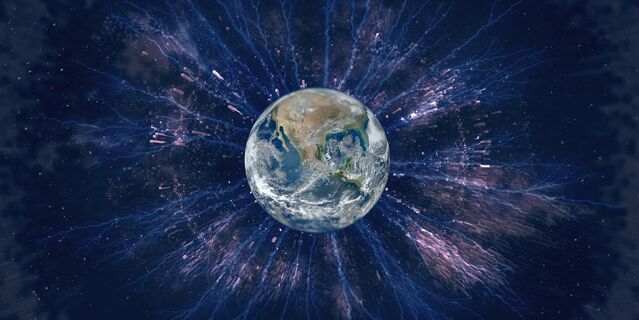Beauty
Star Trek's Captain on Life and Death as Viewed from Space
The beauty isn't out there, it's down here, with all of us and Mother Earth.
Posted October 21, 2022 Reviewed by Hara Estroff Marano
Key points
- Looking into space, Shatner first saw cold, dark, black emptiness and death.
- He was filled with overwhelming sadness and grief in viewing the contrast between the vicious coldness of space and warm, nurturing earth.
- Leaving earth behind made his connection to our tiny, fragile planet even more profound.
- Shatner's experience reinforced his view on the power of our beautiful, mysterious collective existence.

Ninety-year-old Star Trek actor William Shatner finally went to space. He had thought that going into space would be the ultimate catharsis of the connection he had been looking for between all living things. Being up there would be the next beautiful step to understanding the harmony of the universe.
Everything he had thought and expected to see was wrong. When he looked into space, "there was no mystery, no majestic awe to behold . . . all I saw was death." Shatner saw a cold, dark, black emptiness. When he turned back toward the light of home he saw life in "the curvature of earth, the beige of the desert, the white of the clouds in the blue of the sky. Nurturing, sustaining life. Mother Earth. Gaia. And I was leaving her."
Shatner was filled with overwhelming sadness and grief in viewing the contrast between the vicious coldness of space and the warm, nurturing earth below. His knowledge of the destruction of earth, the extinction of animal species, things that took billions of years to evolve, filled him with dread. His trip to space that was supposed to be a celebration instead felt like a funeral.
Like others before him who had traveled to space and viewed earth from orbit, Shatner instinctively sensed the planet's fragility. He saw so clearly that there are no borders on our planet except those that we create in our minds and behaviors. All the ideas and concepts that divide us disappear from orbit and the moon.
The result is a shift in worldview and in identity. Shatner discovered that the beauty isn't out there, it's down here, with all of us. Leaving that behind made his connection to our tiny planet even more profound.
Research suggests that awe can make you happier, healthier, more humble, and more connected to the people around you. Shatner recommends that everyone take the trip, but it is a little expensive.
So maybe we can learn from his experience and change the way we look at the planet and things like countries, ethnicities, and religion. We can connect in shared harmony and shift our focus to all the wonderful things we have in common while respecting what makes us different.
Shatner's experience reinforced his view on the power of our beautiful, mysterious collective existence, and eventually a feeling of hope returned to his heart. He wrote:
"In this insignificance we share, we have one gift that other species perhaps do not: We are aware not only of our insignificance but the grandeur around us that makes us insignificant. That allows us perhaps a chance to rededicate ourselves to our planet, to each other, to life and love all around us. If we seize that chance."
References
William Shatner and Josh Brandon (2022). Boldly Go: Reflections on a Life of Awe and Wonder.


